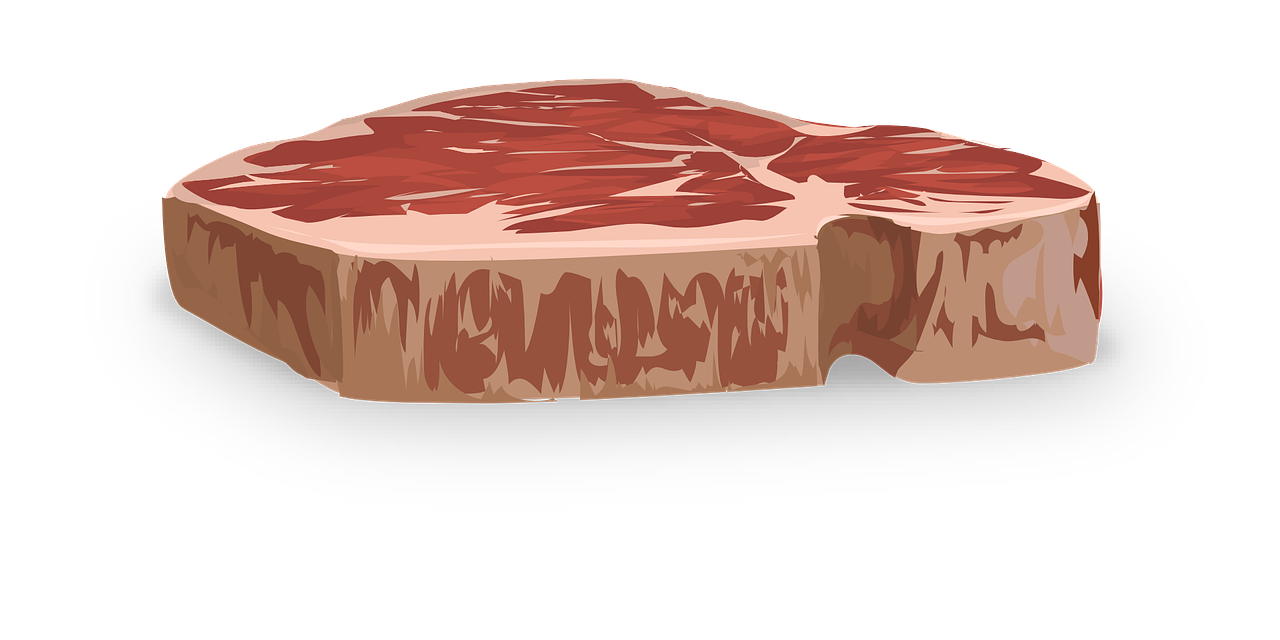Part of an ongoing series on how to use supplement and behavior-based plans to treat common maladies. To read the detailed plan, order supplements, or download the patient resource sheets, go here to create a free patient account at Fullscript by entering your name and email address: Dr. Mark McDonald’s Fullscript dispensary
Living in Los Angeles, the epicenter of bad ideas, I often hear comments from locals extolling the benefits of eliminating meat from their diet. “I feel so much better!” “My energy level is through the roof!” “In only two weeks, I’ve lost eight pounds!” Inevitably, once the honeymoon period ends, these same people begin to suffer from the effects of inadequate dietary protein, essential amino acid deficiency, and the rebound weight gain that comes from the insatiable hunger that comes from eating an unbalanced diet.
They should have begun eating more meat, not less.
Meat provides essential amino acids, iron, magnesium, zinc, and B-vitamins, some of which cannot be obtained from any other naturally-occurring food source. It is the healthiest source of protein, containing good fat without the estrogenic and cancer-causing effects of soy. It offers satiation that leads to decreased cravings for unhealthy nutrient-poor simple carbohydrates like sugar, rice, pasta, and bread. A healthy diet limits weight gain, reduces insulin resistance and inflammation, boosts energy, moderates mood, and improves sleep quality. Simply put, there is no substitute for meat.
Finding healthy meat, though, is not so simple. Put aside the issues of hormones, antibiotics, grass-fed vs grain-fed, cage-free vs free range, and organic vs conventional for a moment. It may feel good to purchase meat with virtuous labels, but most of the labels amount to nothing more than virtue-signaling. Most Americans don’t know that organic food contains biological pesticides, that hormones have been banned from poultry and chickens since the 1950s, and that since June 2023 antibiotics can only be given to farm animals under the supervision of a licensed veterinarian. And no one has any idea what the difference is between cage free and free range, or how it affects the nutritional value of the meat. The labels are primarily used for marketing, and the only thing you can count on is that the products will be much more expensive than the alternatives.
Good quality meat is more expensive than poor quality meat.
And you can’t guarantee quality through a meaningless label. You will need to establish a relationship with a local meat store, butcher, or farmer and educate yourself in how that meat was produced if you want to be sure that what you are buying is high quality and healthy. Either pay for the label of pay for the quality. Same as shirts, shampoo, and sofas.
If this all seems like too much work, or if the cost of actual quality meat in your city if approaching $20 per pound, consider using a high-quality supplement made from concentrated meat—yes, they exist, and they have become quite popular in the elite health and fitness circles. Dried New Zealand beef liver capsules are more affordable than the real thing, and they don’t require cooking! Or combine dried liver, heart, pancreas, kidney, and spleen all in one. Then go out to dinner, order lentils and salad, and explain to your friends that you’ve become a vegan and that you demand they worship you as a superior, enlightened human being. That’s how it works now in American cities.
Below is a link to my Marvelous Meat supplement plan I provide my patients (sounds horrible but is exceptionally healthy). I am now sharing it with my Substack subscribers. To access the plan, you must first create a free patient account at Fullscript by entering your name and email address: Dr. Mark McDonald’s Fullscript dispensary




'Good quality meat is more expensive than poor quality meat'
I can only speak for myself and prices where Iive, but this is not necessarily the case. Local, properly raised beef here is around the same price as what the grocery chains offer, sometimes a little cheaper, at most maybe a dollar more per pound. Havent gotten to the place yet, but recently found a direct sale farm that sells ground beef, from pastured cows (grass finish, no grains ever) for $4 a lb. Same with local eggs (4.50 a dozen). I suggest everyone check local farmers markets or small scale butcher shops if any are in the area and havent. May be pleasantly surprised as how cheap quality food can be when it is outside typical supply chains.
Check the website beefinitiative.com, under the producers section is a list of sources all over the country. Might be a gem near you you arent even aware of.
I appreciated the sources of protein info at FullScript since I'm counting protein grams again.